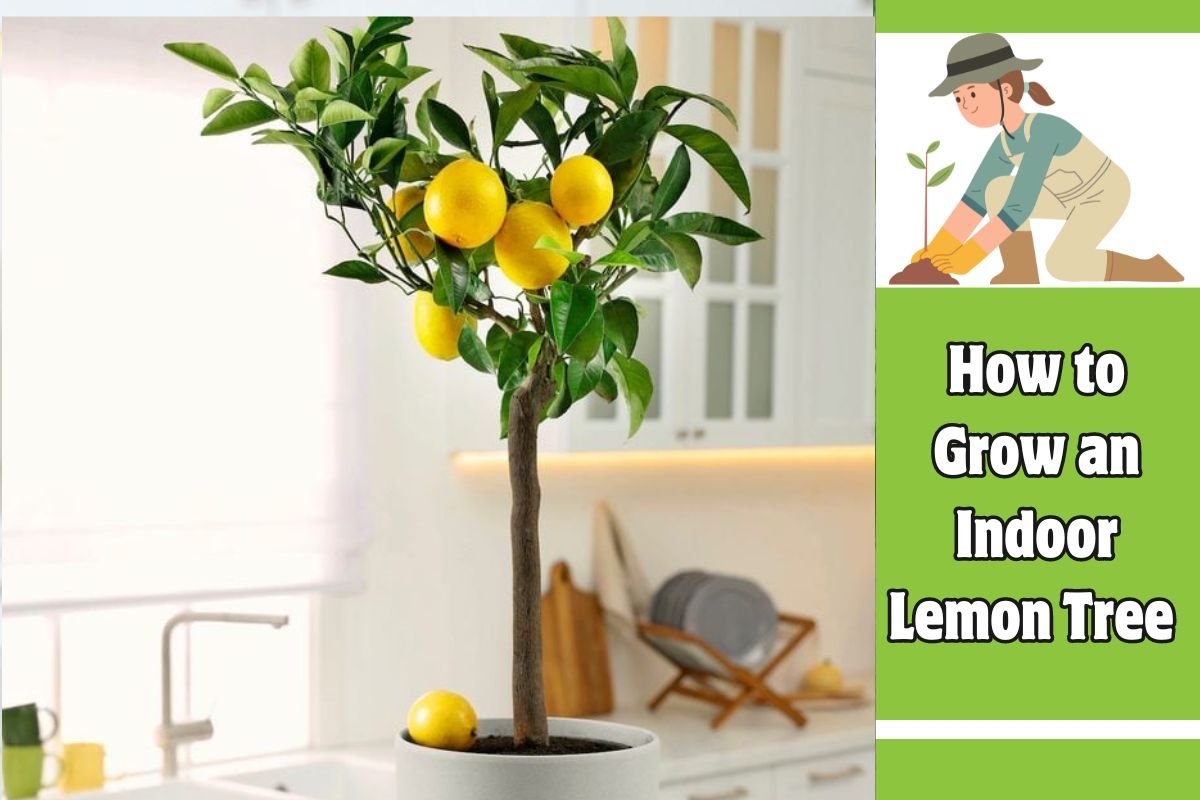How to Grow an Indoor Lemon Tree : Decorating your house for the winter is simpler than you may imagine! Grow an indoor lemon tree for a sweet summertime recall.
How to Grow an Indoor Lemon Tree
Can You Grow a Lemon Tree Indoors?
One of the easiest citrus fruits to grow indoors is the lemon, and lemon trees also make wonderful gifts. They offer lovely, fragrant flowers and cultivated lemons; you supply the sunshine, water, and fertiliser. Scent is one of the best reasons to cultivate an indoor lemon tree, according to cultivate Figs Where You Think You Can’t author Steven Biggs. “Lemon blossoms smell amazing—they bring joy indoors during gloomy outdoor conditions.”
Indoor Lemon Tree Care
Don’t Start With a Seed
Steven says a lemon tree may be grown from a seed, but it takes years to fruit. If you want fruit sooner, get a grafted or rooted cutting, he says. Lemon trees are grafted onto dwarf rootstock to make them smaller and easier to grow indoors.
Container Size
Smaller year-old trees fit in 9- to 10-inch pots. Choose a 12- to 14-inch container for 2- to 3-year-old trees that need extra root space. Choose a pot with drainage holes and high-quality potting mix.
Light and Temperature
Lemons adore sun. Place the tree near a bright window with eight hours of full sun and a grow light if needed. A good mix of bright light and cool temps is best. Steven believes his indoor lemons do best in a cool sunroom or greenhouse in winter. Fruit production thrives in 70-degree winters.
Water and Fertilizer Needs
Lemon trees die fastest from overwatering. “Don’t keep the soil too wet,” advises Steven. Water when the soil is dry to maintain even moisture. Citrus growers track watering with moisture metres. Place the pot on a saucer with pebbles and water to increase humidity, or spritz the plant regularly. Feed the tree citrus tree or all-purpose fertiliser every several months.
ALSO SEE
9 Natural Bleach Alternatives For A Squeaky Clean Home
Advertisement
Grow a Meyer Lemon Tree
My Meyer lemon tree blooms but doesn’t fruit. What can I do? Birds & Blooms reader Gary Darstein
Indoor citrus plants can produce more blossoms and fruit with bright light, fertilisation, and consistent moisture and humidity, according to horticulturist Melinda Myers. Simple care adjustments can help fruit form:
Plant in a bright south- or southwest-facing window or add plant lights to low-light areas.
Use an all-purpose or acid-loving slow-release fertiliser in spring or a quick-release fertiliser from April to September. Always follow label instructions.
A gravel tray adds dampness to the plant. The potted plant should be placed above pebbles in a water-filled saucer.
Water frequently and thoroughly to keep soil moist but not soaked.
Take Your Lemon Tree Outside in Summer
After the last spring frost, move your indoor lemon tree outside for summer. It’s an excellent deck or patio plant for long-lasting fragrance. Before the first fall frost, bring the tree indoors. Steven says lemons drop leaves when brought indoors. “Luckily, they will regrow!”
Scale and spider mites can damage indoor lemon trees, so watch them. Steve uses insecticidal soap and horticultural oil before bringing them indoors in early October.
